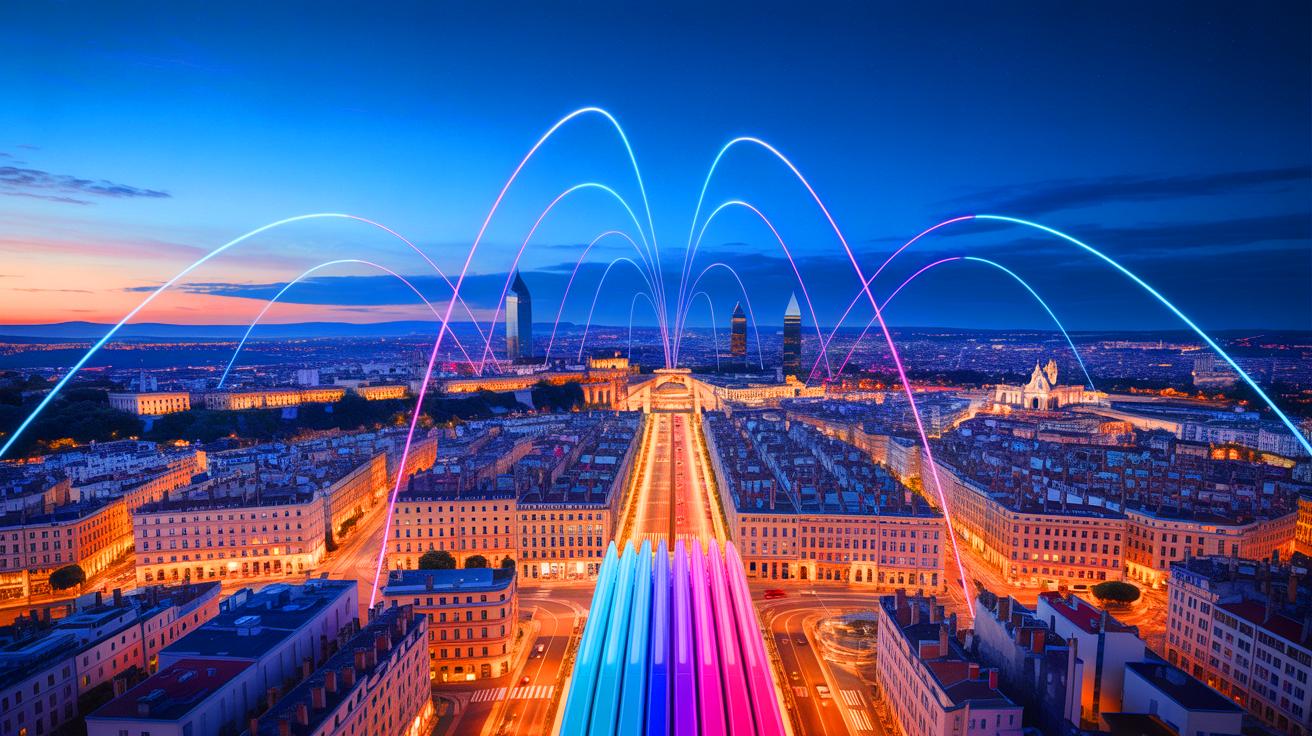IN A NUTSHELL
🚀 Lyon surpasses global tech giants to become the world’s fastest city for internet speed.
📈 France’s nationwide fiber optic initiative boosts high-speed connectivity to 92% of locations.
🏆 Strategic investments and competitive markets drive Lyon’s leading internet performance.
🌐 High-speed internet access emerges as a crucial societal equalizer in France.
In a surprising twist, the city leading the world in internet speed is not one of the usual suspects like Seoul or Tokyo. Instead, it’s Lyon, France, that has claimed the top spot. This unexpected victory is a testament to the country’s strategic investment in fiber optic infrastructure. While Paris often takes the spotlight, Lyon’s recent achievement underscores the broader success of France’s ambitious digital agenda. The findings, confirmed by Speedtest, reveal a remarkable feat in global internet rankings and highlight the importance of strategic planning in digital connectivity.
The Rise of France in Global Internet Rankings
France’s ascent in the global internet speed rankings is not a sudden development. It is the result of a decade-long effort known as the Plan France Très Haut Débit. This initiative aimed to provide nationwide high-speed internet access, primarily through fiber optic technology. The results have been impressive, with nearly 92% of locations in France now connected to fiber optic networks as of early 2025. This widespread connectivity has naturally driven up average internet speeds across the country.
The national average for fiber optic download speeds in France hovers around 500 Mb/s. This impressive figure places France among the leaders in Europe. The success of this program reflects a strategic vision that prioritized digital infrastructure as a crucial element of national development. Such foresight has enabled France to leapfrog traditional tech giants and claim a prominent position in the digital landscape.
Lyon: The World’s Fastest City for Internet
Lyon has emerged as the fastest city in the world for fixed internet, according to Speedtest. With a median download speed exceeding 340 Mb/s, Lyon has outpaced major cities like Shanghai and New York. This achievement is not merely a statistical anomaly. It is a reflection of a well-orchestrated plan involving strategic investments in digital infrastructure and competitive market dynamics.
Speedtest’s methodology ensures accuracy by using the median rather than the average to account for anomalies. This ensures that Lyon’s position is well-earned and not skewed by outliers. The city’s success can be attributed to several factors, including a dense population, competitive internet service providers, and proactive local policies that have facilitated rapid fiber deployment.
Internet Speed as a Societal Equalizer
While having the fastest internet connection in the world is a technical triumph, it carries deeper societal implications. High-speed internet access is no longer a luxury; it is an essential service akin to water and electricity. For many French citizens, the advent of fiber optic connectivity has transformed daily life.
High-speed internet has made remote work feasible and enjoyable, allowing individuals to escape crowded urban centers without compromising their professional lives. It has democratized gaming by enabling cloud-based experiences on modest hardware. Furthermore, it has served as a tool of inclusion, providing telehealth services to the elderly and educational resources to students in rural areas. The implications of such connectivity extend beyond convenience, promising a more equitable society prepared for future digital revolutions.
The Broader Impact of France’s Digital Strategy
France’s success with its digital strategy offers valuable lessons for other nations. By prioritizing digital infrastructure, France has not only enhanced its global competitive edge but also improved the quality of life for its citizens. The Plan France Très Haut Débit illustrates how targeted investments can drive measurable improvements in everyday life.
The ripple effects of this strategy are evident in various sectors, from education to healthcare, and even in the economic opportunities created for small businesses. As other countries look to bolster their digital capabilities, France’s model provides a compelling roadmap. The question remains: how will other nations adapt their own strategies in response to France’s groundbreaking achievements in digital connectivity?
This article is based on verified sources and supported by editorial technologies.
Did you like it? 4.6/5 (22)

